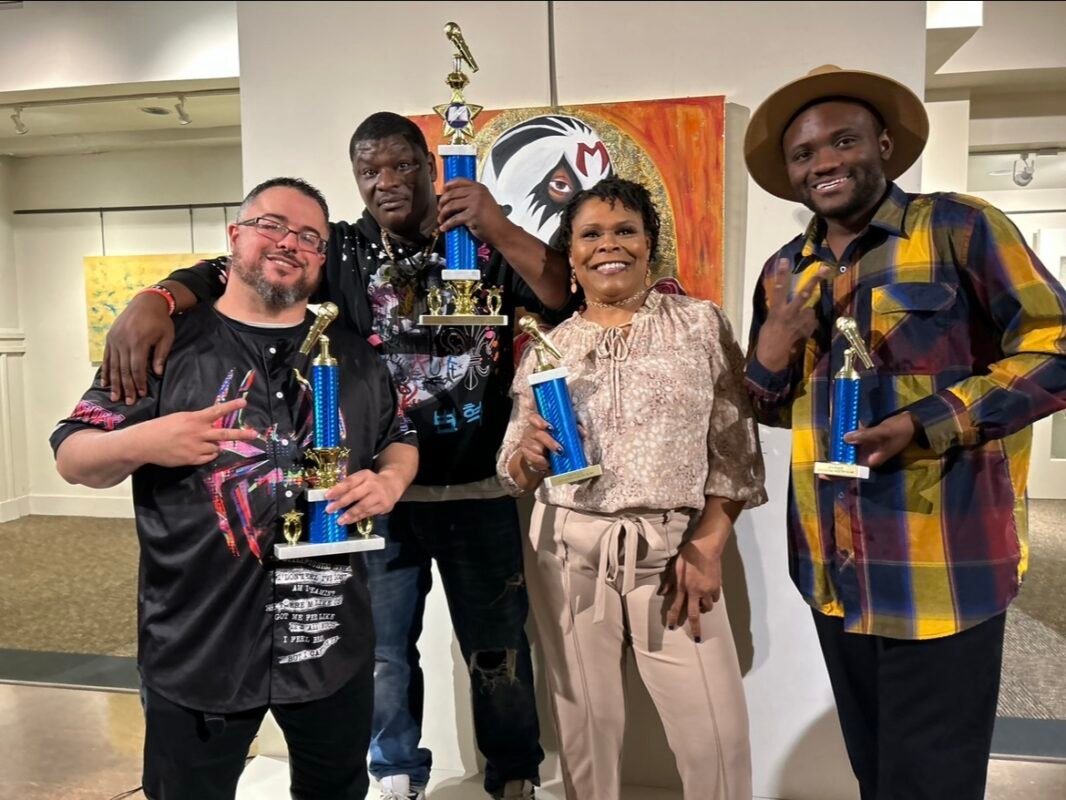Poetry is the expression of words connected to creativity, giving rhythm to language. Although poetry and music are different forms of art, they have a history of inspiring each other.
J. Dilla’s music is often described as having a “poetry sound,” a unique blend of hip-hop chill, jazz infusion beats, and the characteristic rhythm of the “spoken word” community. His sound, with its soothing and relaxing environment, is a testament to his unique style.
My mind time-castled me back to the 1990s-2000s, when I blasted Dilla’s music through my small black radio while flipping through my “Right On!” and “Word Up!” magazines, rhythmic by his beats while my college friends and I would hang out at social outings. I could talk forever about my memories of listening to Dilla’s music.

Let’s dive into the mastermind producer behind his remarkable “timepieces” that started in his Eastside Detroit upbringing.
HISTORY—MOS DEF FEATURING TALIB KWELI
J Dilla (Jay Dee), whose real name is James Dewitt Yancey, was a key figure in the neo-soul movement. Dilla’s beat style pushes the boundaries of hip-hop and R&B, giving listeners a taste of organic hip-hop sound that puts them on cruise control.
His journey in the music industry began in the early 1990s, a time when he met Q-Tip from the legendary hip-hop group A Tribe Called Quest through Detroit musician Amp Fiddler. He started as a member of the underground hip-hop group 1st Down before forming the Detroit-based group Slum Village, a testament to his early influences and the evolution of his sound.
He worked on remix projects for artists like Janet Jackson, Busta Rhymes, Q-Tip, De La Soul, Brand New Heavies, and the Pharcyde. He reached his prominence in the music industry as a producer, expanding his collaboration work with even more artists. He, alongside D’Angelo and Ahmir “Questlove” Thompson of the Roots, created the Soulquarians, a rotating collective of experimental Black music artists popular in the 1990s and early 2000s.
The group later collaborated with musicians and artists in alternative hip-hop and neo-soul, including Erykah Badu, Roy Hargrove, James Poyser, Bilal, Pino Palladino, Q-Tip, Mos Def, Talib Kweli, and Common. Together, the powerful forces ensemble crafted a captivating musical experience, drawing from their diverse backgrounds in alternative hip-hop, neo-soul, and progressive soul.

Dilla also branched out as a solo artist under MCA and with independent record labels. In 2002, he linked up with LA producer MC Madlib to form a group called Jaylib.
His health deteriorated, leading him to be hospital-bound near the end of his life before he passed away three days after his 32nd birthday on February 10, 2006, at the age of 32 from TTP (thrombotic thrombocytopenic purpura) and lupus.
THE LIGHT—COMMON
Dilla’s impact and legacy live on almost 20 years after his death. In February 2025, Dilla was honored with a street named after him, “J Dilla Street,” in his childhood neighborhood. This naming not only serves as a physical reminder of his influence but also as a testament to the enduring love and respect his community has for him.
Shinola Detroit, a Detroit-based watch brand, will soon honor the pioneering hip-hop producer for its upcoming Great American timepiece collection. In the promo video, narrated by Big Sean, he credits Dilla as one of the “greatest producers of all time” for his mastery of creating beats.
DIDN’T CHA KNOW? – ERYKAH BADU
Nearly two months ago (February 21st to February 23rd), well-known poet LeJuane “El Ja” Bowens commemorated his legacy by hosting a three-day El’J Dilla weekend event in the Ville.
The event included a poetry slam contest, live musical performances, an open mic session, a panel discussion, and a Dilla brunch, a gathering where fans and artists could share stories and memories of Dilla over a meal. The Detroit transplant also promoted his book, “El’ J Dilla,” a compilation of poems inspired by the iconic producer.




Highlights of El’ J. Dilla Weekend in Fayetteville, NC during the month of February 2025, hosted by poet, LeJuane “El’ Ja” Bowens -L-R: Bowens on the mic for the opening night of the poetry slam; Bowens’ book cover image, ‘El’ J Dilla’ (J. Dilla Inspired Poetry Collection); Bowens signing his book with J. Dilla’s mother, Maureen “Ma Dukes” Yancy seated beside him; and Participants in the open mic poetry slam on February 21, 2025 (Standing L-R: Letitia Brown, Symay Rhodes, The GYEXP, Izadagod, and Amanda Bullard, Kneeling: Law Bullock); Photo Credit: Tracey Morrison/The Exclusive Press
Dilla’s mother, Maureen “Ma Dukes” Yancy, the honorary guest at the event, recalls her son’s uniqueness in music from infancy. Music was in his DNA through his parents, who were also musicians. His mother was a former opera singer, while his father was a jazz bassist.
“He could gurgle at 3 months old. He can gurgle the perfect pitch. We thought it was funny. After a couple of times trying to remember if he could do it again, he would switch it up,” she shared during the panel discussion on February 22nd.
As an infant, Dilla had a special bond with the Godfather of Soul, James Brown. Her then-husband would help singers and groups rehearse for auditions. When James Brown’s music was played, he would be in his playpen and watch them intently. Brown’s music would also have a baby Dilla thrashing himself in the middle of the playpen, dancing profusely to the song.
She even shared a funny story about him knowing the song was almost over, and he would get frantic, standing in the middle of his playpen, trying to figure out how he would get back to the other side of the playpen.

He also took piano lessons at age 5, sang in the church choir, and taught himself to play many instruments. His creative mind was so deep in music that, his mother recalled, he could play records for hours.
VOCABULARY SPILLS—DE LA SOUL
He expounds so profoundly in his mind to create innovative beats like poets expounding deeper into words, giving them more creative meaning, which connects the family tree branches of music and poetry’s kinship.
His mother, Ma Dukes, shared a powerful statement about operating in your gift, as she allowed for her son.
“Letting someone build on what God has given them in their heart, passion, and desire. How else will you achieve greatness? Because you have the seed,” she said.
He challenged himself by removing the ceilings of music tradition by learning to play every instrument, which revolutionized neo-soul and rap-conscious music in the 1990s and 2000s.

“Dilla’s influence on hip-hop is profound. His ability to dissect and combine multiple instruments, drum programming, and sampling classical songs to create unique hip hop conscious and neo-soul type beats is a testament to his genius. It’s a reason for hip-hop, R&B, and neo-soul enthusiasts to be appreciative of his contributions to the genre.”
– Tracey Morrison, CEO and Writer of The Exclusive Press
Poets also break the traditional barrier of words into a creative form, mixing styles of creativity, metaphors, analogies, and similes—giving innovativeness and life to words. His legacy and contributions to music and poetry are a vibe that’s never forgotten.


